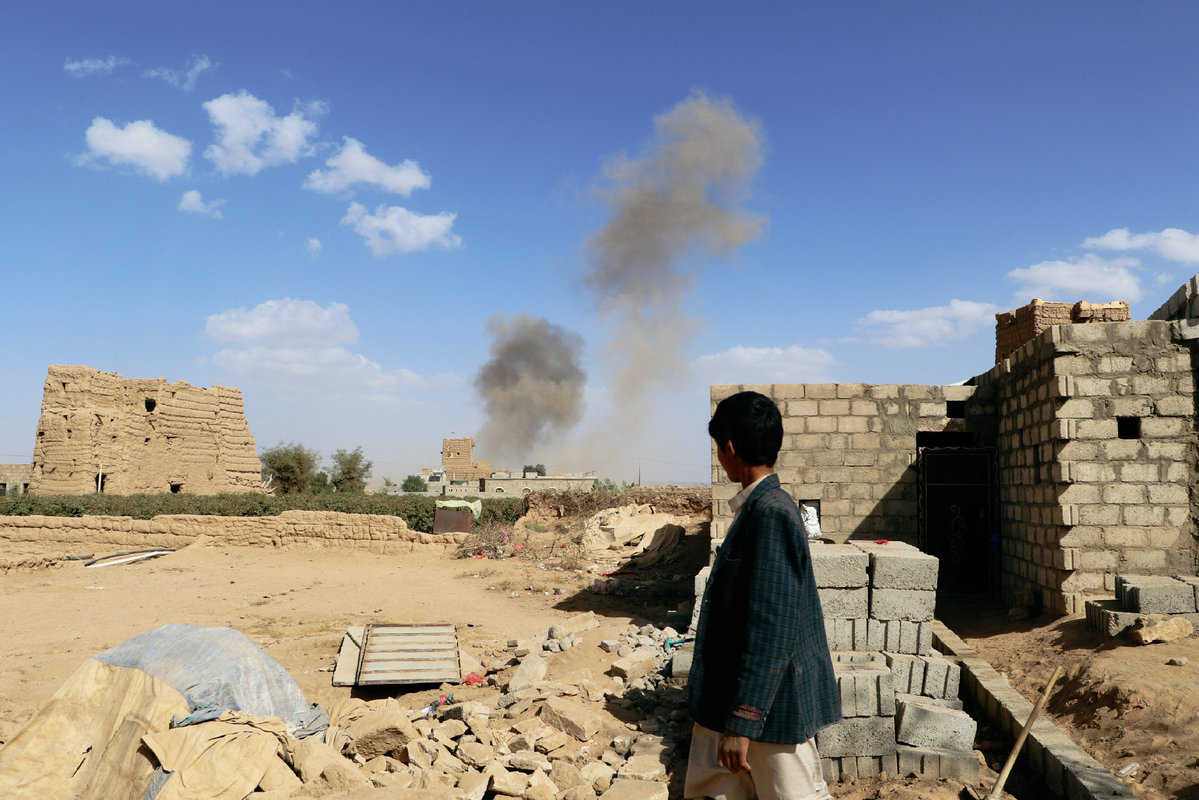UN passes Yemen sanctions proposal
By REN QI | China Daily | Updated: 2018-02-28 09:21

The United Nations Security Council has adopted a Russian-drafted resolution on a technical rollover of the Yemen sanctions regime, Xinhua News Agency reported.
The unanimous vote on Monday followed a Russian veto of a text drafted by the United Kingdom which contained language regarding Iranian "noncompliance" with the UN sanctions against individuals and entities deemed to be engaging in or providing support for acts that threaten the peace, security or stability of Yemen.
In the vote on the UK-drafted text, 11 members of the council were in favor, Russia and Bolivia were against, and China and Kazakhstan abstained.
Britain sought to focus attention on a report in January by the UN panel of experts monitoring sanctions against Iran that examined missile remnants fired into Saudi Arabia by Houthi rebels last year and said many "are consistent with those of the Iranian designed and manufactured Qiam-1 missile".
It concluded that Iran was not abiding by the 2015 UN arms embargo on Yemen because it failed "to take the necessary measures" to prevent the direct or indirect supply of missiles and drones to the Houthis.
According to AP, Britain first dropped condemnation of Iran in the text to try to get Russian support. And during last-minute negotiations, it removed a promise of "additional measures" against violators of the arms embargo, and also softened language from "expressing concern" to "taking note with particular concern" of the experts' findings.
But Russia's UN Ambassador Vassily Nebenzia wasn't satisfied.
He accused Britain of sowing "discord at a time when the Security Council is in dire need of closing its ranks" by bringing the resolution to a vote knowing it would be vetoed.
Nebenzia called the panel's "selective and contentious conclusions" unverified and uncorroborated. And he warned that the resolution's adoption would have "dangerous, destabilizing ramifications" in Yemen and the region.
"This will inevitably escalate regional tensions and lead to conflicts among key regional players," he told the council, warning of the "grave danger in toying with geopolitical maps" and antagonizing relations in the Middle East between Sunnis and Shiites.
Sun Degang, deputy director of the Middle East Studies Institute at Shanghai International Studies University, said the conflict in Yemen comprised four main forces-Houthi rebels supported by Iran, forces loyal to President Abdrabbuh Mansur Hadi and supported by Saudi Arabia and the United Arab Emirates, the remaining forces of al-Qaida and supporters of former president Ali Abdullah Saleh.
Meanwhile, foreign military operations, such as Saudi Arabian-led military intervention and US air raids in Yemen, have influenced the political situation of the war-torn country, said Sun.
























